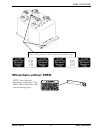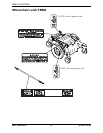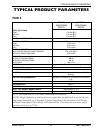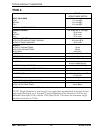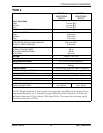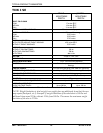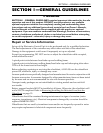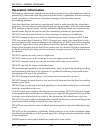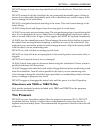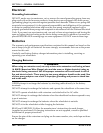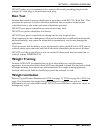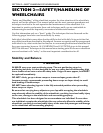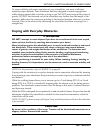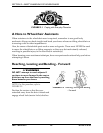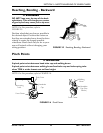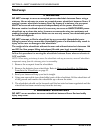
SECTION 1—GENERAL GUIDELINES
Part No 1143150 19 TDX™ Wheelchairs
DO NOT attempt to stop a moving wheelchair with the wheel locks. Wheel locks are not
brakes.
DO NOT attempt to lift the wheelchair by any removable (detachable) parts. Lifting by
means of any removable (detachable) parts of the wheelchair may result in injury to the
user or damage to the wheelchair.
DO NOT overtighten hardware attaching to the frame. This could cause damage to the
frame tubing.
ALWAYS keep hands and fingers clear of moving parts to avoid injury.
ALWAYS wear your seat positioning strap. The seat positioning strap is a positioning belt
only. It is not designed for use as a safety device withstanding high stress loads such as
auto or aircraft safety belts. If signs of wear appear, belt MUST be replaced immediately.
ALWAYS turn the wheelchair power Off and engage the motor locks/clutches to prevent
the wheels from moving before attempting to transfer in or out of the wheelchair. Also
make sure every precaution is taken to reduce the gap distance. Align both casters parallel
with the object you are transferring onto.
DO NOT use with a broken or missing joystick knob.
DO NOT use if joystick does not spring back to the neutral position or becomes sticky or
sluggish.
DO NOT use if joystick boot is torn or damaged.
ALWAYS check foam grips for looseness before using the wheelchair. If loose, contact a
qualified technician for instructions.
ALWAYS engage both wheel locks and reduce the gap distance before transferring to and
from the wheelchair. Turn all casters parallel to the object you are transferring onto.
Avoid storing or using the wheelchair near open flame or combustible products. Serious
injury or damage to property may result.
DO NOT engage or disengage the motor locks until the power is in the Off position.
Wheelchairs with TRRO or TRBKTS Only
Only use the transport brackets included with TRRO and TRBKTS for the purposes
described in this manual.
Tire Pressure
DO NOT use your wheelchair unless it has the proper tire pressure (P.S.I.). DO NOT
overinflate the tires. Failure to follow these recommendations may cause the tire to
explode and cause bodily harm. The recommended tire pressure is listed on the side wall
of the tire.



